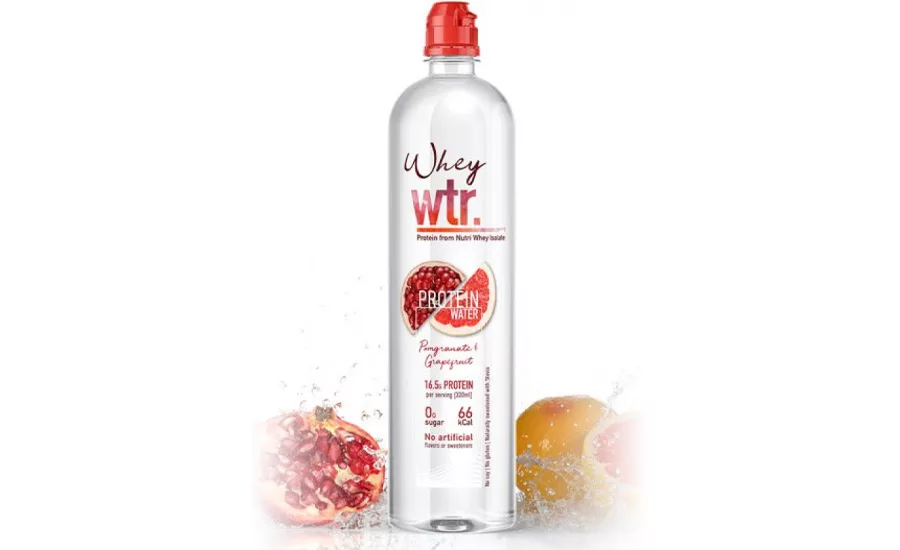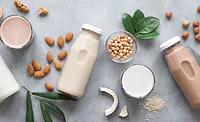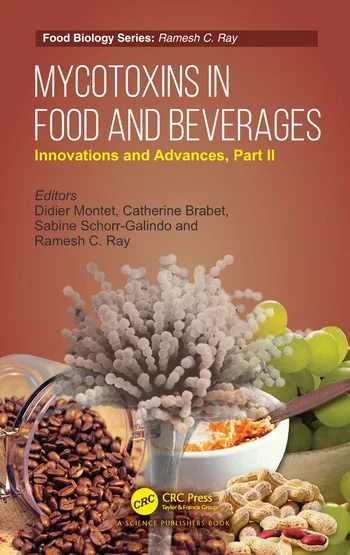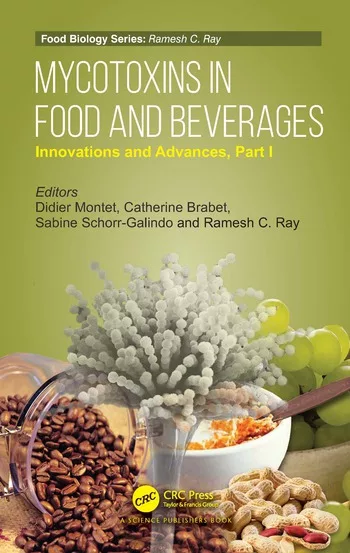Ingredient Spotlight
Consumers demand beverages with protein boost
Beverages with plant-, animal-based proteins seeing growth

FrieslandCampina’s Nutri Whey Isolate Clear can be formulated in a variety of beverages such as clear protein water.
(Image courtesy of FrieslandCampina)
Eat your fruits and veggies” is advice that has been echoed for decades. Although meats and protein also are represented on the dinner plate, protein has drawn attention for its nutritive properties. As agencies such as chooosemyplate.gov recommend those ages nine and older eat 5-7 ounces of protein foods a day, more consumers are turning to protein drinks to satisfy that recommendation.
Yet, as protein fortification proliferates, beverage-makers are sourcing protein from a diverse set of ingredient markets.
Laura Gerhard, director of strategy and marketing, Blue Diamond Almonds Global Ingredients Division, Sacramento, Calif., says that health-conscious consumers’ interest in protein continues to drive innovation across food and beverage categories and remains an important factor in new formulations.
“A recent study from The NPD Group and Dieting Monitor revealed that a growing number of consumers regularly check food labels for protein —32 percent in 2019 compared to only 20 percent a decade ago,” Gerhard says.
As protein improves recovery after endurance training and competitions, its consumption remains valuable for these markets, FrieslandCampina Ingredients North America states citing recent research.
The Paramus, N.J.-based company cites a study by NUTRIM, Maastricht University, which found that ingestion of protein resulted in a positive whole-body net protein balance, and consuming 30 grams of protein maximized muscle protein synthesis rates.
“While carbohydrates are, of course, essential fuel for endurance athletes, it’s clear that protein plays an extremely important part in muscle preservation and repair,” says Jessica Arnaly, communications specialist at FrieslandCampina. “When developing nutritional products for endurance athletes, brand owners should seek to incorporate high-quality dairy proteins to optimize their customers’ recovery and enhance their resilience, helping them to meet their performance goals.”
Benefits abound
In terms of protein, consumers seek options that can be customized to meet their individual goals and that are convenient, says Pam Nisevich Bede, a dietitian with Chicago-based Abbott’s nutrition business. This has led to a greater demand for ready-made nutrition drinks, bars and snacks that contain a number of beneficial ingredients in addition to protein, such as vitamins and minerals, caffeine, fiber, etc., she adds.
“Consumers want variety both in the amount and type of protein in products so they can reach health goals on their own terms,” she says. “This includes high-protein products to build muscle, satisfy hunger and support immune health, keto-friendly snacks and drinks with moderate protein, high-fat, and lower-carb formulations, and also plant-based protein for vegans, vegetarians and flexitarian consumers.”
Abbott offers its ZonePerfect lifestyle nutrition products, which includes shakes, powders and bars, and are made to support these various eating regimens.
Consumers also want protein from plant-based solutions without having to compromise on content or taste.
“Consumers simply want plant options that look, taste, and feel like dairy,” says Jeff Casper, director of research and applications, Merit Functional Foods, Winnipeg, Manitoba. “According to data from SPINS, dollar sales of plant-based products grew 29 percent over the past two years, with plant milks having a household penetration of more than 40 percent of U.S. homes.”
From what he’s seen, Casper notes that plant-based isn’t a niche anymore as it’s motivating major consumer packaged goods (CPG) companies to reformulate and innovate new product lines.
Pam Stauffer, global marketing programs manager for Minneapolis-based Cargill, notes that a recent Food and Health Survey from the International Food Information Council Foundation found that more than one-third of shoppers are trying to consume more plant-based proteins.
“More than three-quarters [of consumers] view protein from plant sources as healthy,” Stauffer says. “Only fiber and whole grains rank higher.”
Morristown, N.J.-based PLT Health Solutions (PLT) highlights that this trend proves evident as retailers now are carrying more plant-based products.
“Industry demand for ingredient solutions is growing exponentially,” says Steve Fink, PLT’s vice president of marketing. “At the same time, we’re all trying to create a better experience. [PLT wants] every consumer who tries a plant-based product to say ‘yes’ and come back for more.”
PLT’s Artesa Textured Pulse Protein, created by Henrico, Va.-based food ingredient company Nutriati, offers quality taste, texture and mouthfeel without wheat gluten, eggs or methylcellulose that are common in many of today’s protein formulations, it explains.
According to the Plant Based Foods Association, U.S. retail sales of plant-based foods increased 11.4 percent in 2019, bringing the total plant-based market value to $5 billion. This suggests that plant-based products align with consumers’ health and wellness plans.
“Plant-based protein sources, in particular, sync with consumers’ growing interest in natural food ingredients and a simpler label,” Blue Diamond’s Gerhard says.
Melissa Machen, senior technical services specialist of plant protein for Cargill, also notes huge influence that plant-based trends are having on the beverage space.
“Product developers have stretched far beyond the original soy and almond ‘milk’ products, infusing botanical proteins into all kinds of beverages, from meal-replacement drinks and sports nutrition products to juices, teas, coffees and even water,” she says.
Abbott’s Bede agrees, noting that consumers don’t need to be strictly vegan or vegetarian to opt for plant-based items.
“One in three Americans now considers themselves a flexitarian, meaning they don’t adhere to one specific eating style and may combine plant-based and meat-based diets,” she says. “There are also more readily available plant protein options available today.”
Bede points to Abbott’s Ensure Plant-Based Protein nutrition shake as one example, which uses a blend of fava and pea to deliver 20 grams of non-dairy, plant-based protein.
A steady pace
Looking ahead to the future, Cargill’s Machen, notes that the availability and supply of different plant sources will continue to grow, along with a greater understanding of how these plant proteins function in beverages.
“As plant-based proteins increase in popularity, more potential ingredients are coming into the market, many of those proteins offer improved functionality, flavor and consumer acceptance,” she says. “As a result, I believe we’ll continue to see a rise in product launches in the beverage category utilizing pea, oat, rice and other plant-based proteins.”
As shoppers continue to push for protein, they will take a deeper interest in the nutritional attributes of different proteins, with increased demand for beverages made with complete proteins and specific amino acid profiles, Machen adds.
“Improvements in processing methods are also advancing quickly, which will give rise to plant proteins with improved flavor, solubility and emulsification strength,” she says. “Finally, I believe we will start seeing more blends of different proteins, which will allow brands to formulate more plant-based beverages with complete protein profiles.”
Looking for a reprint of this article?
From high-res PDFs to custom plaques, order your copy today!









